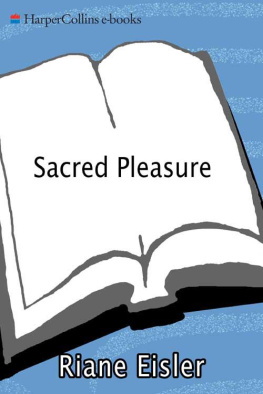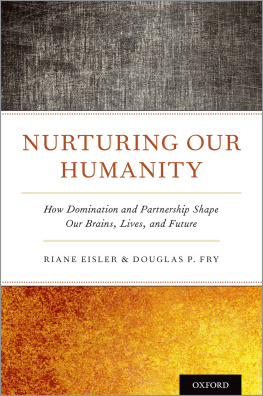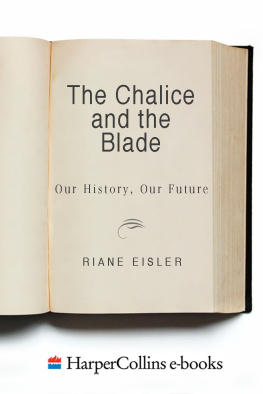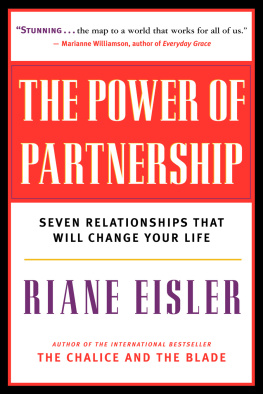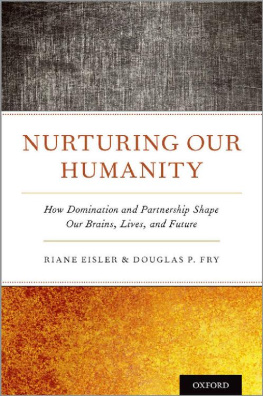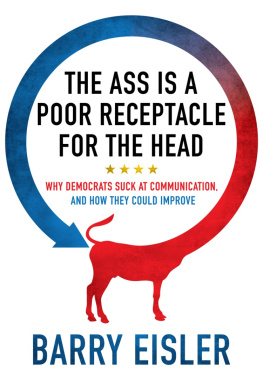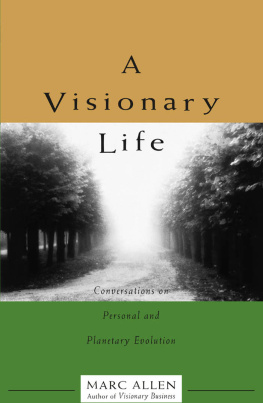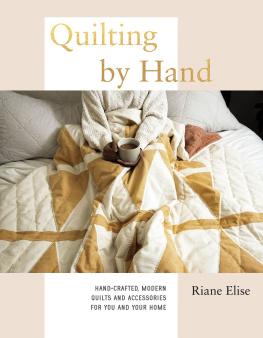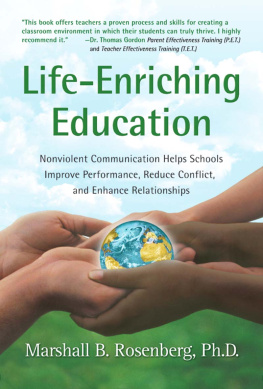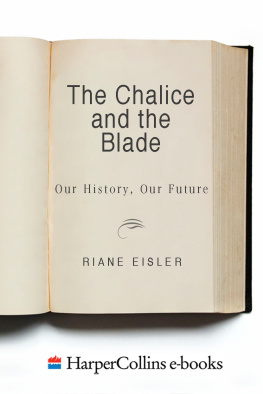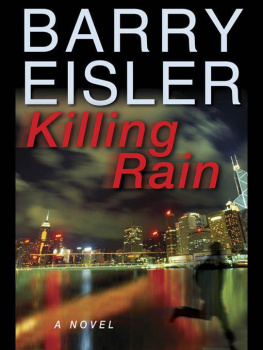Riane Eisler - Sacred Pleasure: Sex, Myth and the Politics of the Body
Here you can read online Riane Eisler - Sacred Pleasure: Sex, Myth and the Politics of the Body full text of the book (entire story) in english for free. Download pdf and epub, get meaning, cover and reviews about this ebook. year: 1995, publisher: HarperOne, genre: Romance novel. Description of the work, (preface) as well as reviews are available. Best literature library LitArk.com created for fans of good reading and offers a wide selection of genres:
Romance novel
Science fiction
Adventure
Detective
Science
History
Home and family
Prose
Art
Politics
Computer
Non-fiction
Religion
Business
Children
Humor
Choose a favorite category and find really read worthwhile books. Enjoy immersion in the world of imagination, feel the emotions of the characters or learn something new for yourself, make an fascinating discovery.
- Book:Sacred Pleasure: Sex, Myth and the Politics of the Body
- Author:
- Publisher:HarperOne
- Genre:
- Year:1995
- Rating:3 / 5
- Favourites:Add to favourites
- Your mark:
- 60
- 1
- 2
- 3
- 4
- 5
Sacred Pleasure: Sex, Myth and the Politics of the Body: summary, description and annotation
We offer to read an annotation, description, summary or preface (depends on what the author of the book "Sacred Pleasure: Sex, Myth and the Politics of the Body" wrote himself). If you haven't found the necessary information about the book — write in the comments, we will try to find it.
Sacred Pleasure: Sex, Myth and the Politics of the Body — read online for free the complete book (whole text) full work
Below is the text of the book, divided by pages. System saving the place of the last page read, allows you to conveniently read the book "Sacred Pleasure: Sex, Myth and the Politics of the Body" online for free, without having to search again every time where you left off. Put a bookmark, and you can go to the page where you finished reading at any time.
Font size:
Interval:
Bookmark:
Sex, Myth, and the Politics of the Body
Riane Eisler

To David
Our Sexual and Social Choices: An Introduction
Sacred Pleasure is a book that quite unexpectedly demanded to be written. My plan, as I mentioned in the closing pages of The Chalice and the Blade, was to write a different book. But fortunately the creative process is guided not only by our conscious plans but by far deeper stirrings. So gradually, though not without a struggle, I began to shift from what I thought I wanted to write to what I now see I needed to write.
As I was putting together the materials and notes for the book I was originally planning, there was one chapter that kept getting bigger and bigger. This was the chapter called From Chaos to Eros: Dominator or Partnership Sexuality. First the materials started to overflow from one to two, and then three, four, and five file folders. In a very short time, there was a whole box. Then a second, a third, and a fourth.
At that point, I began to see that this was not a chapter. It was the book I was going to write. Moreover, as I got more deeply into it, it turned into a book that not only challenges many of our most basic assumptions about sex; it also puts at issue much of what we have been taught about love, spirituality, politics, and even pain and pleasure.
Sacred Pleasure explores the past, present, and potential future of sex. It looks at both sex and the sacred in the larger context of our cultural and biological evolution. It demystifies much in our sexual history that has been confusing, indeed incomprehensible, shedding new light on matters still generally shoved under the rug of religious dogma or scientific
jargon. It shows that the struggle for our future is not just political in the conventional sense of the word, but revolves around fundamental issues of pain and pleasure. Above all, it helps us better understandand thus break free ofthe agonies we chronically suffer in our search for healthier and more satisfying ways of living and loving.
For me, writing this book was an exciting journey of continually amazing discoveries. Sometimes it was a deeply troubling journey, as I had to come to grips with all that in our culture to this day links sexuality with violence and brutality. Other times what I found was so strange and funny it made me laugh out loud. And as I read everything I could lay my hands on about sex, ultimately what I found led to a whole new theory not only about the evolution of sex, but about the evolution of pleasure, politics, consciousness, and love.
I should say from the beginning that although I think much that I deal with is universal, my focus has been on Western society. Even here, though we will also look at homosexual relations, I have focused primarily on heterosexual relations and how these affect, and are in turn affected by, different social formsalready in itself a huge subject.
I should also say that my aim has not been to accumulate knowledge just for its own sake. I was strongly motivated by the increasingly critical need for transformative knowledge: for the new tools for personal and social transformation that our time of mounting ecological, political, and economic crises requires if we are to have a better future, perhaps a future at all. Thus, my research was set up to try to answer questions that for most of us are far from being just matters of intellectual curiosity.
Why, when avoiding pain and seeking pleasure are such primary human motivations, have we for so long been taught that the pleasures of sex are sinful and bad? Why, even when sex is not condemned as evil (as in modern pornography), do we so often find it associated not with erotic love but with the marketing of womens bodies or with sadism and masochism, with dominating or being dominated? Was it always so? Or was there a time before sex, woman, and the human body were vilified, debased, and commodified?
What really lies behind rape, incest, and other forms of sexual violence? How and why did these practices arise? Most important, what personal and social changes can help us move toward a healthier, less dysfunctional, less hurtful way of structuring sexual (and more generally, human) relations?
My search for answers to these questions took me into fields ranging from biology, psychology, sexology, and sociology to economics, archaeology, art history, literature, and mythology. Time and time again I kept coming back to the profound human yearning for connection, for bonds forged by love and trust through both sexuality and spirituality. I became particularly interested in the ecstatic experience, and in the at first seemingly incongruous erotic imagery in so many Eastern and Western religious traditions.
Gradually I began to see that this connection between sex and spirituality was not accidental; that in fact it has very ancient roots. I also began to understand why love is the key word not only in romantic but also in mystical literature, and why the poetry of mystics, like that of lovers, is so often erotic.
The more I probed, the deeper the questions went. Eventually I began to look at not only sex and spirituality, but also pain and pleasure in a completely different wayhence the (to some people) heretical book title Sacred Pleasure. I began to see that neither human society nor human history can be understood without taking into account the very different ways a society can use pain or pleasure to motivate human behavior. Even beyond this, I began to see the central, though amazingly ignored, role pain and pleasure have had in the evolution of culture, and even of life. I also saw how the evolution of our highly developed human capacities for sexual pleasure and for the intense pleasures of love was a potential turning point in the extraordinary history of this planet.
At that moment, it was as if a hundred light bulbs had just gone on. For I began to see that much that is happening in our time is about what for shorthand I have come to think of as the pain to pleasure shift: the shift to a social system that can support, rather than chronically block, these highly pleasurable human capacities.
This in turn made it possible for me to see that it is not coincidental that so much of our traditional religious imagery sacralizes pain rather than pleasure, or that the capacity to inflict pain, rather than to give pleasure, has been idealized in so many of our epics and classics. It helped me understand how and why our lives came to be poisoned by notions like pain and pleasure are two sides of the same coin, spirituality and sexuality are at opposite poles, and the war of the sexes is inevitable. Most important, I began to understand that to overcome the pain and guilt, the exploitation and alienation, the tragic and often comic obstacles that have so embittered both womens and mens lives will require fundamental changes not only in how we view sex, spirituality, and society, but in how we view the human body, power, pleasure, and the sacred.
No subject arouses more curiosity than sex. It is indeed fascinating, as we will see in the pages that follow, how varied sexual attitudes and behaviors can be. But this book does not just present a pastiche of intriguing sexual tidbits from many cultures over thousands of years. It organizes what otherwise appears to be random information into patterns.
Sex is one of our most basic human drives. Moreover, sexual relations are more physically intense, and often more fully felt, than any other personal relations. This is why the way sexual relations are constructed influences all other relations. But this is not just a one-way process. How sex and sexual relations are defined is in turn also profoundly influenced by a societys economic, religious, and political structure.
Font size:
Interval:
Bookmark:
Similar books «Sacred Pleasure: Sex, Myth and the Politics of the Body»
Look at similar books to Sacred Pleasure: Sex, Myth and the Politics of the Body. We have selected literature similar in name and meaning in the hope of providing readers with more options to find new, interesting, not yet read works.
Discussion, reviews of the book Sacred Pleasure: Sex, Myth and the Politics of the Body and just readers' own opinions. Leave your comments, write what you think about the work, its meaning or the main characters. Specify what exactly you liked and what you didn't like, and why you think so.

